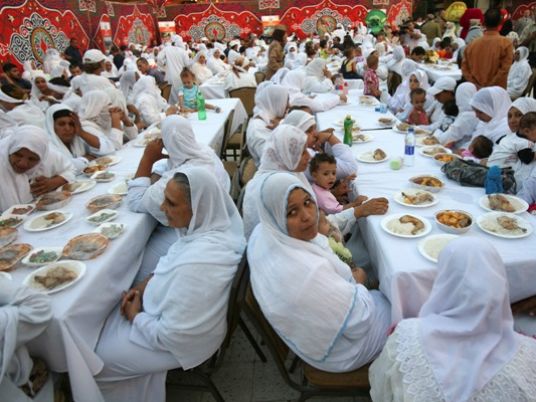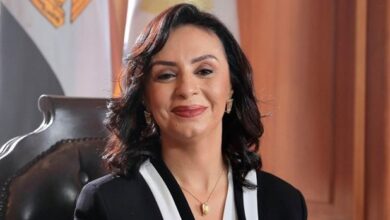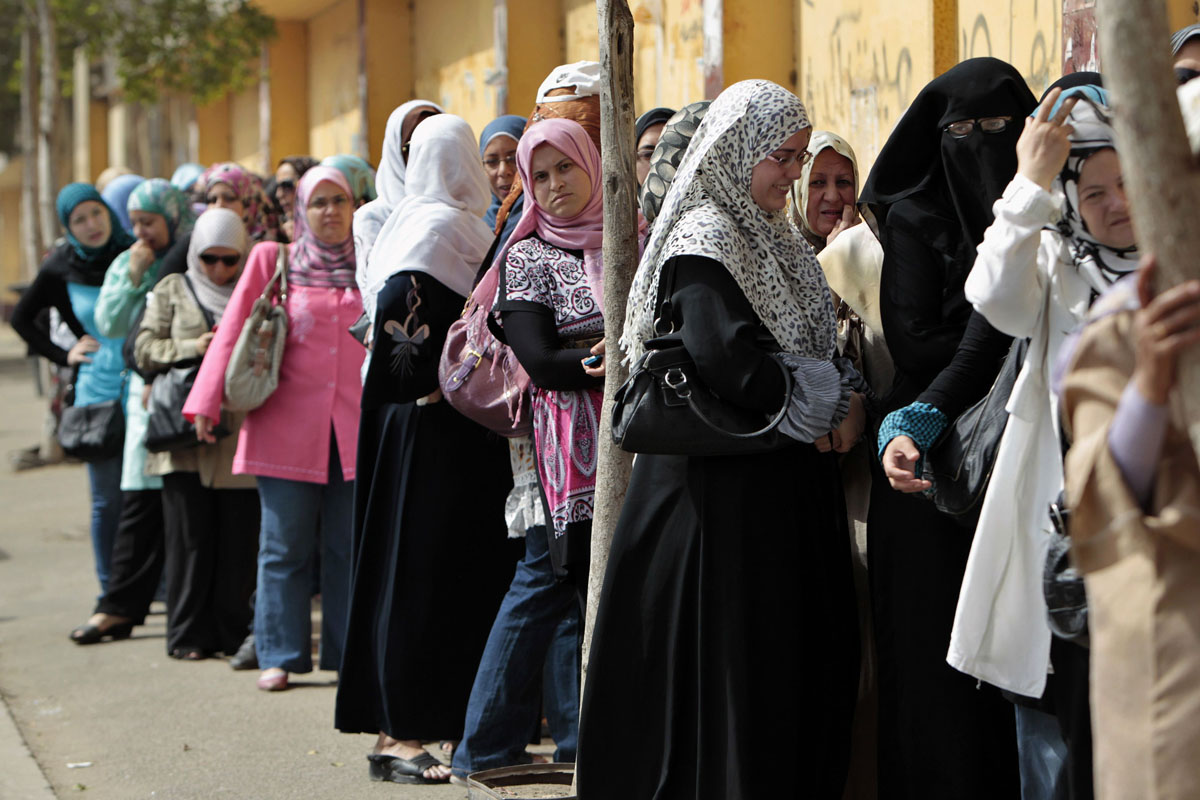
"Please do not right down my name. I don't want to scandalise my daughters," said Ehsan Ehab*, a 47 year-old mother, threatened with the possibility of landing in jail after failing to repay the bank for a loan she had borrowed.
Ehsan had borrowed 20 thousand Egyptian pounds to establish her own bakery project two years ago, with an interest rate of 18 percent. The project only lasted for a few months, leaving Ehab, who was already struggling with mounting debts due to the shop's rent and bills, unable to pay the 1320-pound loan installment after the fifth month.
A single mother independently raising her three daughters, Ehab says she was pushed to work around the clock to meet her daughters' needs and support their education. She could not afford to pay a lawyer to broker a deal with the bank from which she had borrowed the money. Instead, she turned to a women's rights organisation which filed the lawsuit on her behalf pro bono.
The bank never asked Ehab for a feasibility study for her project before granting her the loan, she says. It just mortgaged her shop. She now believes a feasibility study could have prevented the failure of her project.
The women's rights organisation whose help Ehab sought eventually helped her escape prison by brokering a deal with the bank. The single mother was also able to take a new loan to revive her project, which is now making adequate profit.
BORROWING FOR THE "BIG DAY"
Um al-Rizq Saeed, a 42-year-old single mother from Kafr El-Sheikh, resorted to loans after her ex-husband refrained from financially supporting their four daughters.
Saeed works in a hotel with a 250-Egyptian pound monthly salary.
"In 2012, I was compelled to take a 5000-pound loan from the Business Women Association before my daughter's wedding," Saeed says, adding that she borrowed the money to buy her daughter's marriage requirements.
After the wedding, things started to take a bad turn for Saeed. Her salary could barely cover the house's rent, 75 pounds per month, and the rest of her family obligations. She got an extra job, yet it failed to provide her with a stable income. Unable to pay her loan installments in time, they mounted to reach 6600 pounds.
The Business Women Association filed a lawsuit against Saeed. The court sentenced her to four years in prison.
Saeed had no choice but to evade the prison sentence, she says, until she found a charity organisation which agreed to pay her debts and broker a deal with the association on her behalf, consequently revoking her prison sentence.
REASONS FOR FAILING TO REPAY THE LOAN
There is no clear statistic detailing the number of women incapable of repaying their loans in Egypt. But figures indicate that tens of thousands of women fail to repay their loans, ending up in prison.
One charity organisation operating in Egypt, Misr El-Kheir Foundation, has paid the debts of 23 thousand people in the past five years, says Soheir Awad, an administrator at the foundation. Awad adds that most of those indebted were women.
Naglaa Abdel Raouf, projects director at the Association for the Development and Enhancement of Women (ADEW), attributes the problem to women's inability to afford the expenses of their projects. The ADEW is an organisation which provides small and microloans.
Women who take loans are usually unable to separate their personal spending from their projects' budgets, Abdel Raouf adds; they often spend the loan they have borrowed for a project on their children's marriages or their houses' renovations.
Abdel Raouf nevertheless says that microenterprises usually do not face problems in loan repayment.
"It is rare that a woman faces trouble when repaying a loan she has taken, so long as the loan is below 5000 Egyptian pounds," Abdel Raouf says. She adds that unlike larger projects, microenterprises usually require domestic skills which the borrowing woman possesses.
WOMEN REPAY LOANS MORE REGULARLY
Women borrowed around 956 thousand Egyptian pounds from Egypt's Social Fund for Development, since 1992 and until June 2014, making up 58 percent of the microenterprises supported by the fund.
The fund said, in a report it issued in June, that women repay their loans more regularly than men.
The revenues of projects managed by women usually reflect highly on their families, the fund said; women would spend them on their children's education, health services and improving the family's living conditions.
Statistics also suggest that most loans women borrow are small.
Motaz Tabaa, executive director of the Alexandria Youth Businessmen Association, says that 88 percent of the association's loans below 2000 Egyptian pounds are borrowed by women, whereas only 15 percent of loans ranging from 2000 to 150,000 pounds are borrowed by women. The latter loans are usually borrowed to fund larger projects.
Most women who apply for loans at the association are uneducated, Tabaa says, adding that they are therefore more likely to be exploited.
The association only sues borrowers who exercise manipulation to evade repaying their loans, Tabaa says. He adds that the association helps any clients with "exceptional circumstances" which could prevent them from repaying their loans.
*Ehsan Ehab is an alias used to protect the real subject's identity



